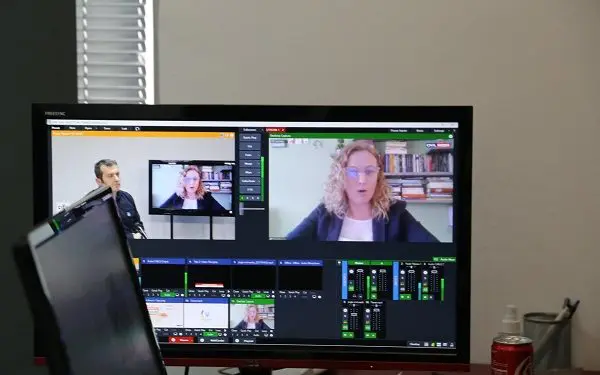Rosana Aleksoska – MOST at CIVIL’s panel “Russian-Ukraine Crisis and North Macedonia”, talks about the project on the fight against fake news and narratives and the Russian propaganda in North Macedonia.
“The project ‘Fight against fake news and narratives’, is being implemented since 2018. However, I have been personally dedicated to research on such information since 2016. Our primary interest are disinformation narratives. When we talk about disinformation narratives, we need to be aware and try to see the big picture. Not every disinformation, as an individual information, can have an impact. However, if we look at them as a chronological wholeness, in a certain period of time, in a certain context, on a certain topic, then things become clearer and we can see more clearly what the goal is actually, and what it’s all about”, says Aleksoska.
Aleksoska reflected on the disinformation narratives and the ways they are used and impact citizens.
“From what we have noticed so far, not only in the study, but also from other analyses that have been published on our website, overall, I can say that most of the disinformation narratives that are directed against the West, against the US, the EU or NATO, at the same time, directly or indirectly, also mean promotion or glorification of Russia. A range of factors are usually used, but also abused, such as the legacy of communism or socialism, the Slavic origin and religion, and the openness to democratic societies. In societies where Orthodox population lives, Russia, as a rule, promotes narratives about the Slavic identity and Orthodoxy, through various types of media, academia, intellectuals and various organizations, the Church, culture, certain politicians and political parties. In our case, in the Balkans, and even in the part of Central Europe, Russia is directing citizens towards the concept of shared values of the Slavic and Orthodox brothers, and thus, as if it is monopolizing this concept, and normally, this narrative is intensified with the narrative that we as peoples have nothing in common with the Western world, which is absolutely not true. This contributes to wrong perceptions about our Western allies, but introduces discord and divisions in our multiethnic society and state, outlines Aleksoska
Text editing: Diana Tahiri
Camera: Dehran Muratov
Realization and editing: Arian Mehmeti
Translation: N. Cvetkovska















